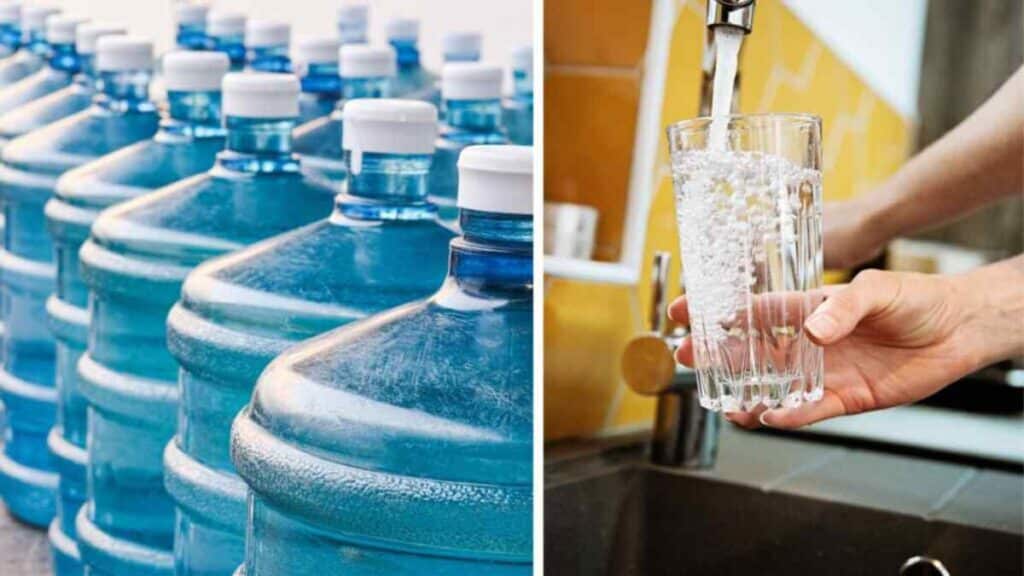
When choosing what to drink, many people decide between bottled water and tap water. But with so much conflicting information, it can be tough to know which option is the best for your health and the environment.
The truth is, both have their pros and cons. Bottled water is convenient and easy to find, but it’s more expensive than tap water, and bottled water can also be bad for the environment. Tap water is cheaper and safer for the environment but not as convenient for those who need access to a faucet.
So, what should you drink? Whether you’re trying to save money, reduce your environmental impact, or ensure that you drink clean, safe water, this guide has you covered. This article will discuss one of the most critical and debated topics: Bottled Water vs. Tap Water.
We will explore the pros and cons of both options and help you make an informed decision on what to drink. We will take a closer look at the cost, taste, convenience, and, most importantly, both options’ environmental impact and safety.
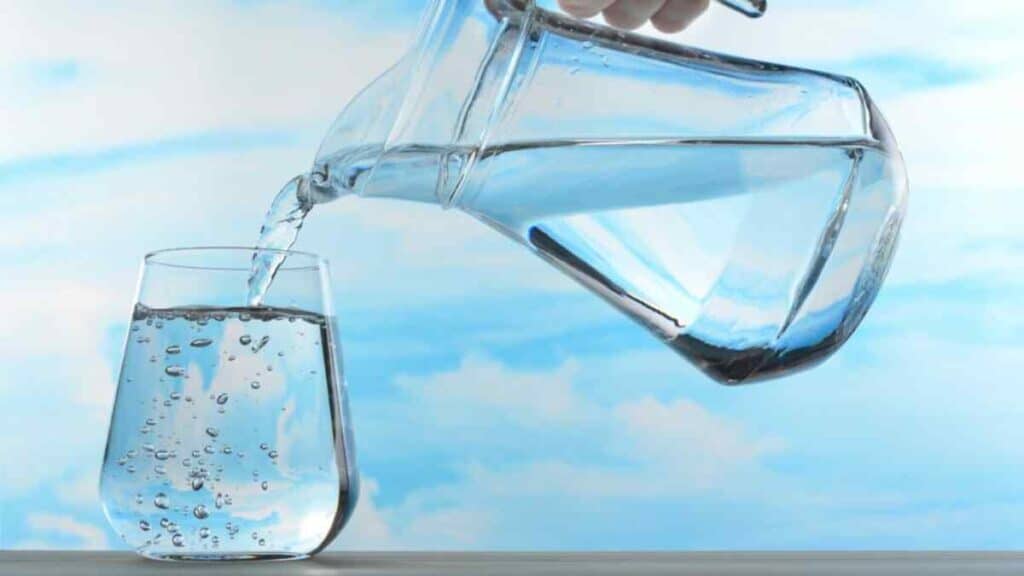
Water Is Essential for Health
Water is essential for good health. It helps to keep our bodies hydrated and functioning properly. Without enough moisture, our bodies can become dehydrated, leading to various health problems such as fatigue, headache, and even constipation.
The importance of water cannot be overstated. Your health will improve if you have clean water or good sanitary conditions. You can get sick or even die from diseases like diarrhea that spread quickly through dirty water or poor hygiene practices. But it’s not only about that. It’s also about knowing how much water you should drink daily so you don’t over hydrate yourself (which can be just as bad as not drinking enough).
According to the World Health Organization, drinking 8 glasses of water daily to stay healthy and hydrated is essential. We can find it in many different sources, such as tap and bottled water.
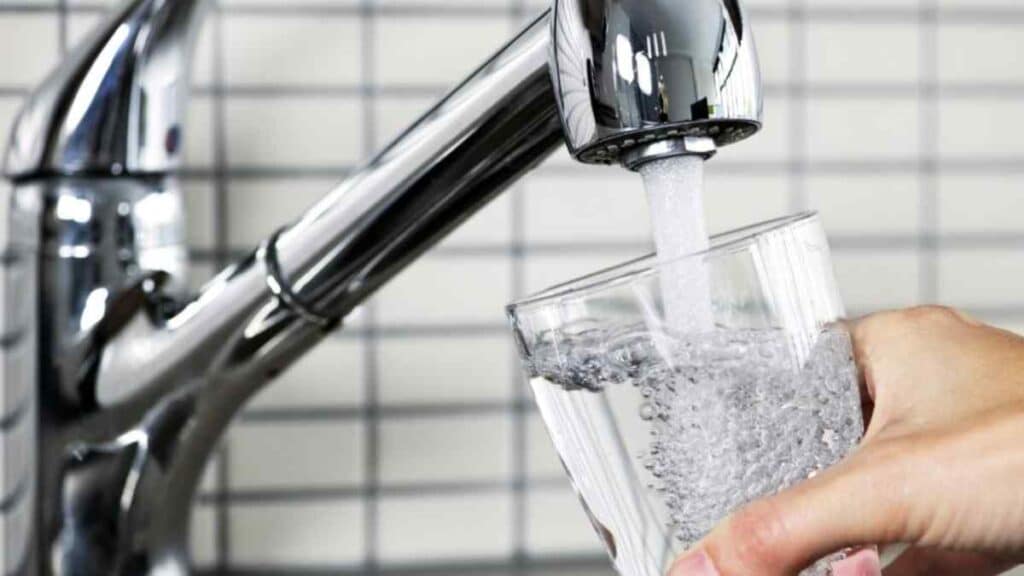
What Is Tap Water
Tap water is provided to homes and businesses by a public water supply system. It typically passes through a water treatment plant before being piped into homes and businesses. The water comes out of the tap when you turn it on.
Local tap water is usually treated to avoid water contamination, make it safe to drink, and remove any impurities. The Environmental Protection Agency (EPA) regulates drinking water quality in public service delivery systems, including those that come from private wells, to ensure that it’s safe for human consumption.
Tap water is usually treated to avoid contamination, make it safe to drink, and remove any impurities. The Environmental Protection Agency (EPA) regulates drinking water quality in public service delivery systems, including those that come from private wells.
Drinking tap water is convenient, affordable, clean, and safe to provide your family with healthy water. Using tap water responsibly and conserving this valuable resource is crucial. To that end, the Food and Drug Administration (FDA) regulates public water systems through the Safe Drinking Water Act to ensure that this vital resource is safe for everyone.
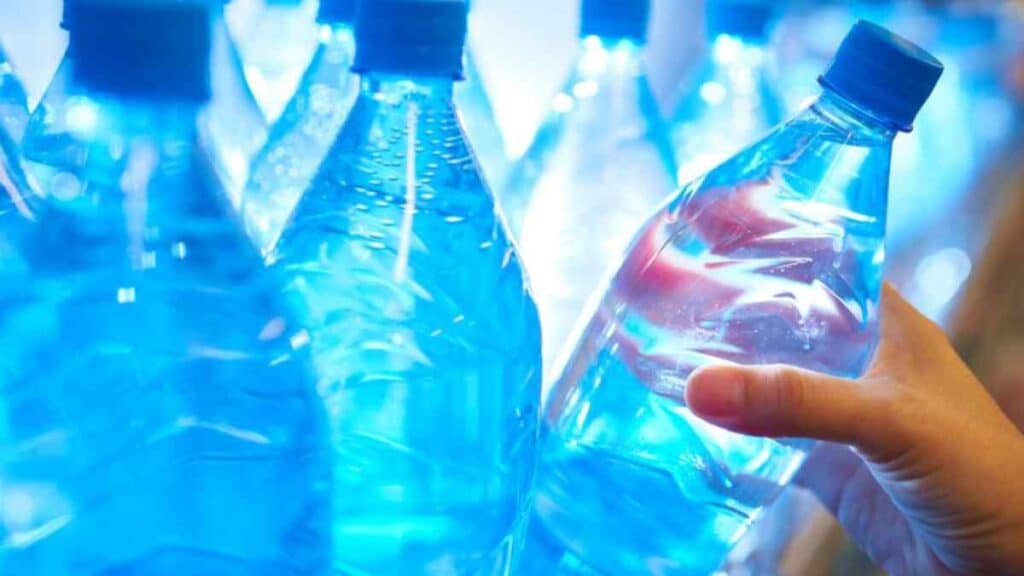
What Is Bottled Water
Bottled water is packaged food products in glass and reusable water bottles and sold to consumers. The water is sourced from various sources such as springs, wells, or municipal water sources, and it goes through a treatment process, such as water filters, distillation, reverse osmosis, or ozone treatment.
While bottled water is considered safe to drink, it can be more expensive than tap water, and its production and transportation can harm the environment. Bottled water consumption is essential to carefully consider the source and quality of bottles before consuming them.
What Is the Difference Between Tap Water and Bottled Water?
There are several other differences between tap water and bottled water. For example:
- Availability: Tap water is readily available through pipes in homes and businesses, while bottled water must be purchased from a store or other location.
- Purity: Some people believe bottled water is purer than tap water, but this is only sometimes the case. Government agencies regulate both types of water to ensure that they meet specific standards for safety and purity.
- Taste: Tap water tastes vary widely depending on the location and the local water supply quality. Bottled water may have a different taste due to the type of water source and any additional treatment or processing.
- Convenience: Bottled water is in disposable containers that are convenient to carry and can be found in many locations. In contrast, tap water is only available through the pipes in a home or business.
- Health concerns: Some health risks are associated with tap and bottled water. For example, tap water can sometimes contain trace amounts of contaminants, while some bottled water brands may contain high levels of minerals or other substances. It is vital to research the safety and purity of both types of water before consuming them.
Special precautions regarding drinking water are recommended if you have a weakened immune system. Some people with weakened immune systems may want to avoid tap water altogether and drink bottled water instead.
Contaminants in Tap Water vs. Bottled Water
Environmental working groups regulate its quality to ensure that tap water is safe and pure. However, tap water can sometimes contain trace amounts of chemical contaminants from the environment, pipes, and treatment processes.
These contaminants include bacteria, viruses, minerals, and man-made pollutants. The Environmental Working Group’s research reveals that contaminants in tap water vary significantly by location, source, and composition. Still, the levels of contaminants in tap water are generally low and are monitored by government agencies to ensure that they are within safe limits.
Bottled waters are also regulated to meet specific safety and purity standards. However, the sources and treatment methods of bottled water plants for bottled water can vary, affecting the quality of drinking water.
Bottled water brands may contain more minerals or other substances than tap water or fresh spring water, while others may be purified higher. It is vital to research bottled water’s source and treatment methods before consuming it.
Which Is Better for the Environment?
When choosing the best option for the environment, tap water is generally better than bottled water. While bottled water is convenient, it often comes with a higher environmental cost. The production, transportation, and disposal of plastic bottles can harm the environment, mainly due to the energy and resources needed to create them.
More than 17 million barrels of oil are required to produce enough plastic water bottles to meet America’s annual demand for bottled water, according to Earth Policy Resources. Plastic water bottles also take lots of water to make. Around 1.39 liters of water are needed to produce a 1-liter bottle. Making plastic bottle generates greenhouse gases.
Bottled water and its plastic waste also lead to grim circumstances for the environment and society. According to The Water Project, only one in five plastic water bottles is recycled. Approximately 80 percent of all single-use water bottles become litter. It takes three liters of water to make a plastic bottle that will hold one liter of water, and it takes over 1,000 years for that bottle to biodegrade, states EarthWatch.
To minimize the ecological footprint of bottled water, some municipalities around the world have banned the sale of single-use plastic water bottles. Many bottled water companies have also researched that making bottles with biodegradable materials may have fewer environmental effects.
In contrast, tap water is generally more energy-efficient to produce and distribute, and it can be easily refilled in a reusable bottle, reducing waste. Additionally, many municipal water treatment plants have processes to protect the environment, such as using water filtration systems and implementing eco-friendly practices.
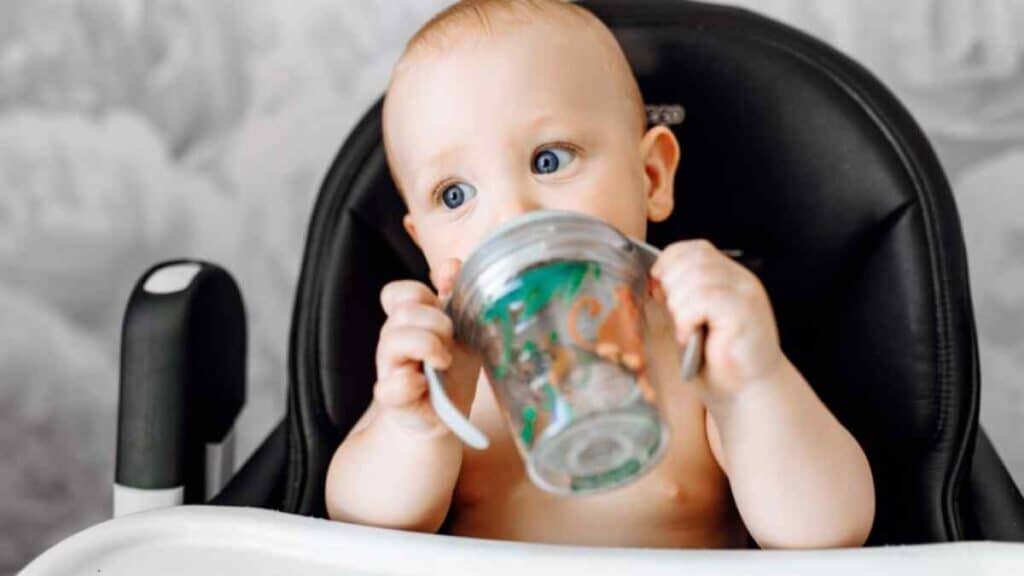
Which Is Better for Consumption?
When it comes to consumption, both tap water and bottled water can be safe to drink. However, whether one is better can depend on several factors. Regarding purity, tap water is generally considered safe to drink as bottled water, as government health agencies regulate it and must meet strict safety standards.
Additionally, tap water is tested regularly for a wide range of contaminants and pollutants, and the water treatment facilities quickly address any issues.
On the other hand, when considering taste, it’s a matter of personal preference. Most people cannot differentiate the taste of tap water versus bottled water in blind taste tests. Still, some people may prefer the taste of bottled water, while others may prefer the taste of tap water.
Additionally, some people may feel more comfortable drinking bottled water when traveling or in places where tap water may not be safe to drink. It’s essential to check the labels and certifications when purchasing bottled water to ensure you get the water quality you expect, considering the water’s source, purity, minerals, and taste.
Therefore, bottled and tap water can be safe to drink, but choosing water purified through effective treatment is essential. Some bottled water companies may have different standards and can be sourced from tap water with minimal treatment. Ultimately, the choice between tap and bottled water should be based on personal preferences and circumstances.
Scientific Facts About Water for Babies
Water is vital for babies’ health and development. It makes up 78% of their body weight and helps with body temperature, digestion, and removing toxins. Babies should drink water, mostly breast milk or formula, for the first six months and can have water in addition to that afterward.
Dehydration can be dangerous for babies, so it’s essential to make sure they get enough fluids. Water is the best choice for babies, rather than sugary drinks or juice.
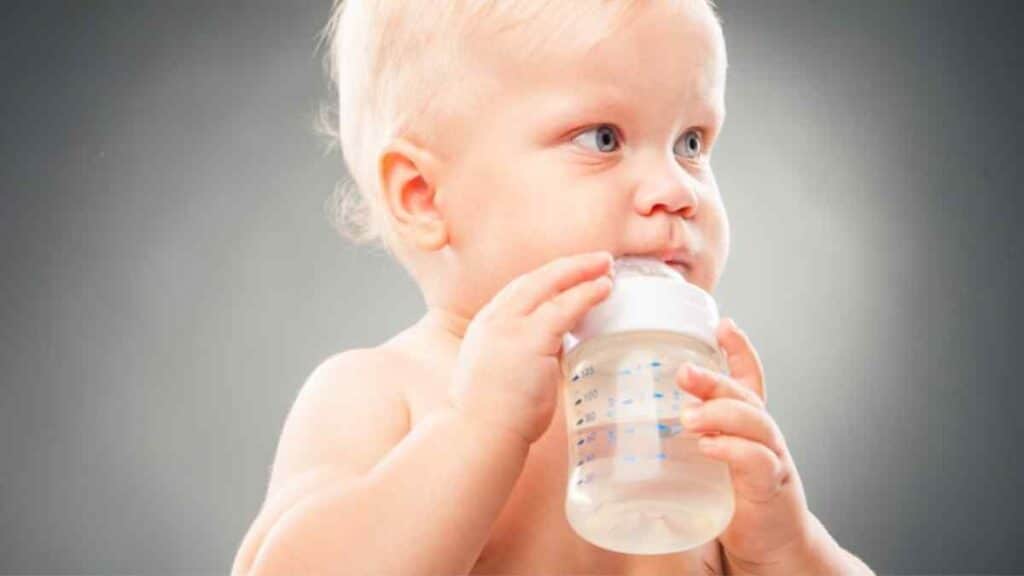
What the Experts Say Regarding Using Tap Water for Babies
According to experts, tap water is safe for babies to drink as long as it is from a safe source and has been properly treated. Tap water in the United States and many other countries must meet strict safety standards set by government health agencies and is regularly tested for various contaminants and pollutants. The water treatment facilities quickly address any issues that arise.
It’s recommended to boil the tap water for babies for one minute before consumption, especially for newborns, as it can kill bacteria or any viruses that might be present in the water. This step is unnecessary if you live in a city or municipality where the water is fluoridated.
In summary, tap water is safe for babies to drink if it has been adequately treated and is sourced from a secure location. It’s essential to check your local water supply to ensure it meets the quality standards set by the government. If in doubt, boiling the water for a minute or consulting with a pediatrician is always a safe choice.
What the Labels Mean Regarding Bottled Water for Babies
When purchasing bottled water for babies, it is essential to pay attention to the labels and understand what they mean. The first thing to look for is whether the water is labeled “distilled water.” It means that the water has been processed in such a way as to eliminate any harmful bacteria or other microorganisms that could be present.
It is essential for babies, as their immune systems are not yet fully developed. Another label to look for is “purified water,” which indicates that the water has undergone a process such as reverse osmosis or distillation to remove impurities such as chemicals, minerals, and bacteria.
Additionally, look for the term “spring water” and “artesian water” are also commonly found on bottled water labels. These indicate that the water has been sourced from an underground source and may undergo additional treatment before being bottled. While these water sources can be cleaner and purer, as it’s not necessarily better for babies, it’s always good to check the label for any other important information.
It’s important to note that the FDA sets standards for the levels of various contaminants that bottled water may contain, but it is optional to have a detailed list of the contaminants on the label. It’s always good to check with the manufacturer if you have any concerns about the water you’re considering for your baby.
Takeaways
Both tap and bottled water can be safe for babies to drink, but it’s vital to ensure that they meet appropriate standards for purity and safety. Consider using a home water filtration system or carefully researching the source and quality of bottled water to ensure that you are providing your baby with clean, safe water. It’s always a good idea to consult a healthcare professional for guidance on what to drink.
Did this article help you? If you have any questions or need some advice, please comment down below.



